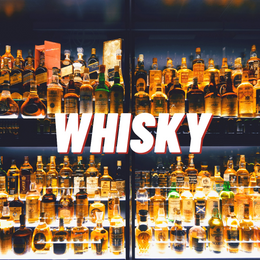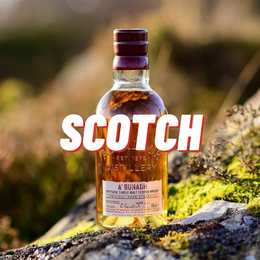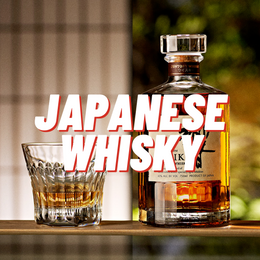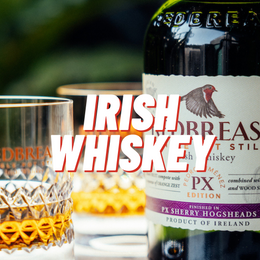
“If I cannot swear in Heaven, I shall not stay there. If I cannot drink bourbon in Heaven, then I shall not go.”
- Mark Twain
What is bourbon? How is it different from whiskey?

Perhaps the most famous and distinctive style of whiskey made in America, is bourbon. Let’s clear up some confusion: all bourbons are whiskey but not all whiskey are bourbon.
We have discussed whisky from Scottish, Irish or Japanese tradition. These whiskies are usually made from 100% malted barley, or a mixture of barley and some other grain.
Bourbon is made from (1) a high amount of corn- at least 51%, (2) aging in new, charred oak casks, and (3) must be made in the United States.

Corn is the core ingredient of bourbon.
Learn all about the fascinating history of bourbon and American whiskey and how they are made, here.
Who cares?
Some of the popular international whiskey brands from the US like Jim Beam, Maker’s Mark and Michter’s focus on producing bourbon whiskey.
Within the continental US, the popularity of bourbon on a whole different scale.
So much bourbon is produced that the bourbon industry is used to indirectly support the timber industry. In the 80’s, the US Congressed passed law requiring all bourbon to have been aged in “new” oak barrels. This meant that barrels could not be reused, and must be discarded after maturing only one batch of bourbon! New barrels had to be constantly sourced from the timber industry in order to produce more bourbon.
Cult brands like Pappy Van Winkle sell out incredibly quickly and re-appear on the secondary market for well over US$3,000. Late celebrity chef and documentarian, Anthony Bourdain, once seriously considered getting the logo of Pappy Van Winkle tattooed on his back.
There’s a strong cultural dimension too. From a historical perspective, bourbon embodies an early American spirit of adaptation, entrepreneurship, blue-collar humility and freedom (from the Government and colonialists). Corn was the New World crop of choice because European barley was more difficult to cultivate on American soil. Enterprising farmers made high-proof bourbon as a way to prevent spoilage of surplus crop and make a buck off it. Kentucky bourbon also has its roots in a rebellion against George Washington’s unpopular liquor excise tax, which led many farmers to flee to the mountainous Kentucky region to grow corn and distill bourbon away from bothersome government troops.
It isn’t for nothing that bourbon has been designated by the US Congress as America’s native spirit.
Why should I care? Should I try bourbon?
While European whisky tends to focus on elegance or refinement, bourbon exudes a uniquely American character. It is a distinctive product of its own with a distinctively rich, sweet and punchy flavour profile and tastes very different from other styles of whisky from Scotland, Ireland or Japan.
People who prefer more richness and sweetness in their whiskies may really enjoy bourbon. Adding a bourbon to your whisky bar also brings a unique contrast and makes your whisky appreciation journey that much more interesting, lively and fun. Its distinctive taste adds a colourful section to the cornucopia of flavours we can derive from whiskies.
Some have found that sipping on a tumbler of bourbon helps you convey and channel an air of Southern American ruggedness, or a “cowboy/cowgirl attitude” if you will. And if you’re interested in learning a little bit of American history, why not immerse your nose and palate in the literal American spirit?

You, after having a sip of liquid freedom (Artist: Jason Heuser)







